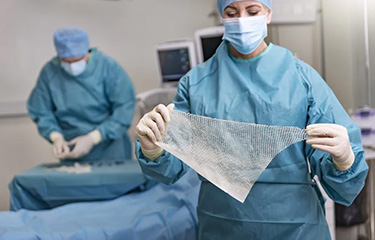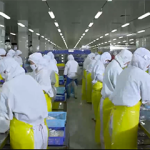Fish-skin woundcare firm Kerecis bought by Coloplast for USD 1.3 billion

Copenhagen, Denmark-based Coloplast is purchasing Isafjordur, Iceland-based Kerecis, which has developed technology that uses fish skin to perform tissue transplants.
Coloplast, a multinational firm that develops, manufactures, and markets medical devices and services, will pay DKK 8.9 billion (USD 1.3 billion, EUR 1.2 billion) in cash and an earnout potential of up to DKK 680 million (USD 101 million, EUR 91.2 million). Coloplast said it would finance the deal through an equity capital raise. The deal is expected to close in Kerecis’ Q4 2022-2023, pending regulatory and shareholder approval.
"Kerecis represents an attractive opportunity to strategically strengthen Coloplast's presence in the advanced wound care market by entering the high-growth, U.S.-centric biologics segment," Coloplast said in a press release. “With a mission to improve wound care treatment, Kerecis has developed and patented a clinically differentiated, sustainable, and scalable technology platform based on intact fish skin. Produced with minimal processing, the fish skin retains its similarity to human skin, resulting in improved wound healing. The technology is backed by compelling evidence from multiple clinical trials and has already been used to treat tens of thousands of patients.”
Coloplast said Kerecis will operate as a standalone business unit under its own identity and brand, but that it plans to provide business support to aid Kerecis’ “strong growth outlook and continued expansion.”
In 2021, Kerecis received authorization from the U.S. Food and Drug Administration to market its Omega3 SurgiBind product, an implantable fish-skin graft derived from wild-caught Atlantic cod for use in plastic and reconstructive tissue. In 2020, Kerecis’ Omega3 Viruxide system was tested as a means to control the infectious spread of Covid-19. Also in 2020, Kerecis signed a five-year contract with MellingMedical to provide its would-care technology to U.S. veterans suffering from combat-related trauma, burns, diabetic ulcers, and surgical wounds.
Kerecis Primary Wound Spray, which contains fatty acids derived from fish products, has been shown to decrease viral load and curb the symptoms of an infection. It is available in the entire European Union, Switzerland, the U.K., Canada, South Korea, South Africa, Australia, and the U.S.
Since the launch of its first products in 2016, Kerecis has become the fastest-growing company in the biologics wound care segment, with DKK 510 million (USD 76.2 million, EUR 68.4 million) in revenue. It reached break-even in 2021.
“Due to a highly cost-efficient production setup, Kerecis has an attractive gross margin level, accretive to Coloplast’s gross margin. Kerecis has strong potential to expand its profitability driven by continued growth and scalability,” Coloplast said.
Kerecis is expected to grow around 50 percent in FY 2022-2023 and has an estimated three-year compound annual growth rate of around 30 percent until FY 2025-2026. Kerecis’ EBIT margin is expected to be around 10 percent in FY 2022-2023, around 20 percent in FY 2025-2026, and more than 30 percent in subsequent years.
Photo courtesy of Kerecis






Share